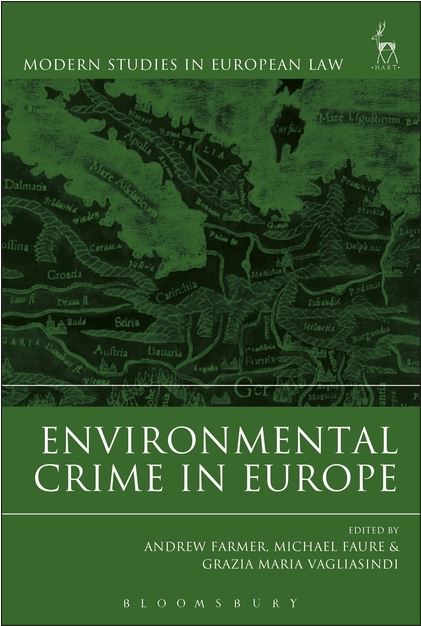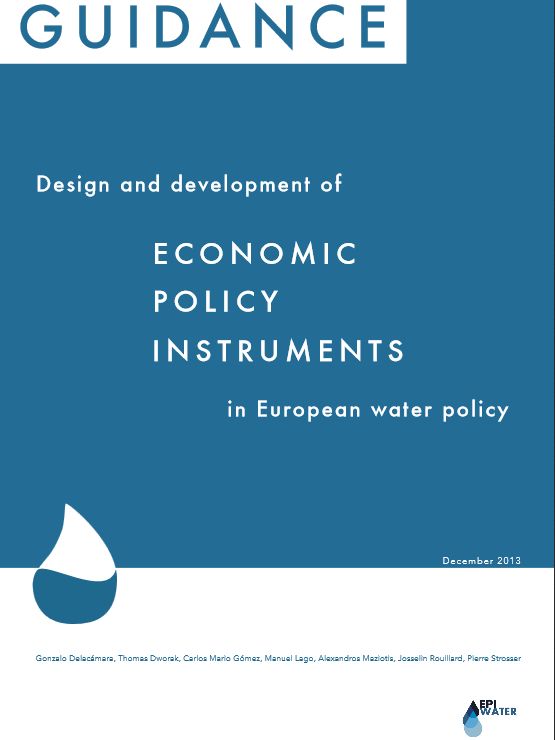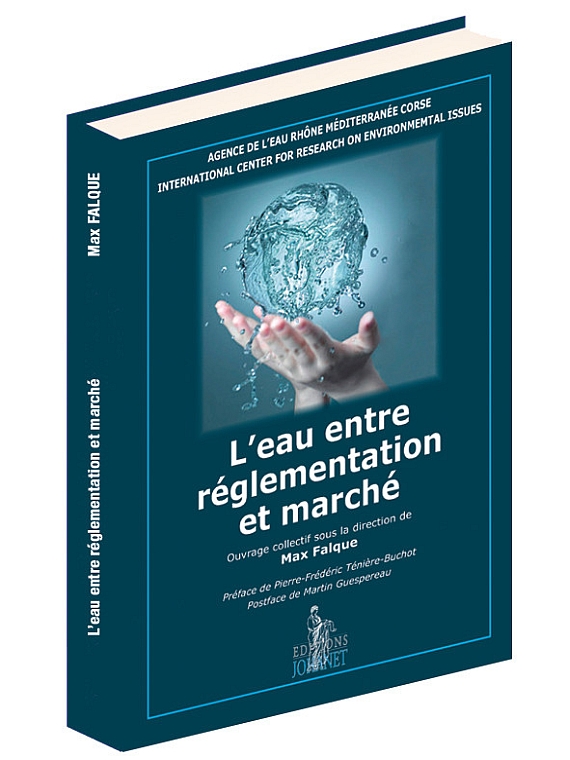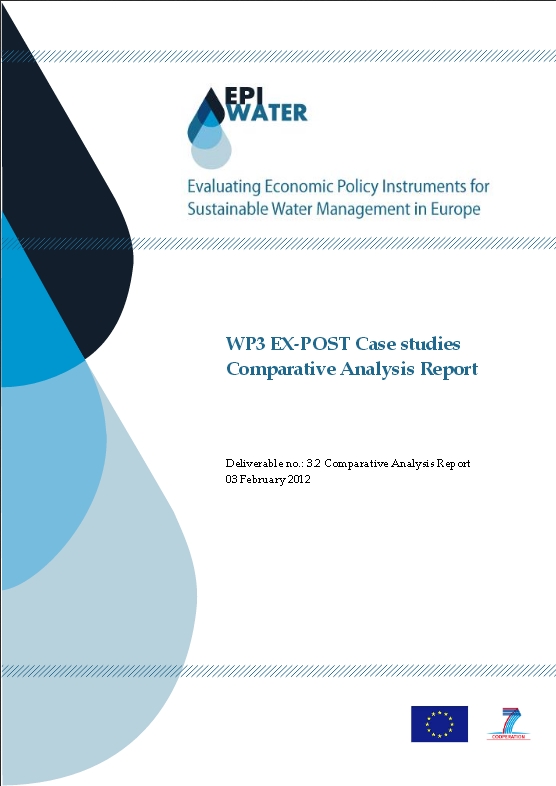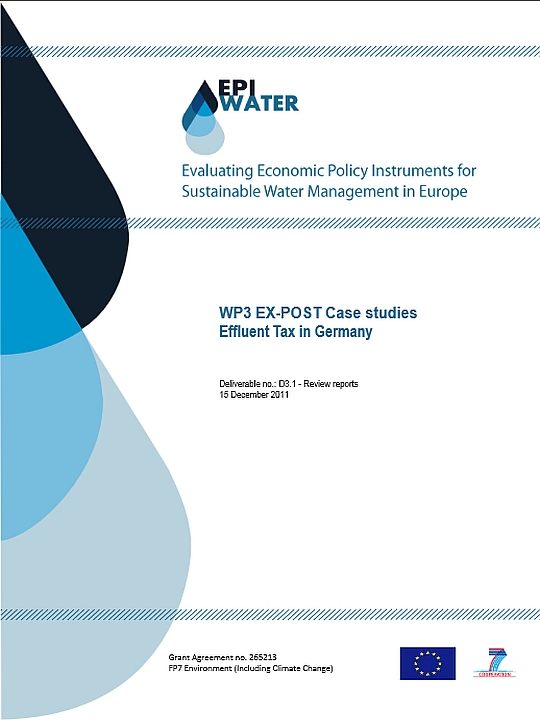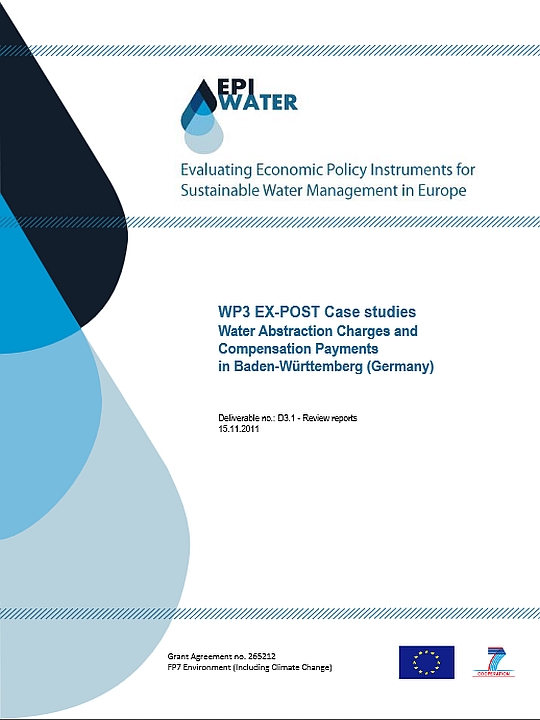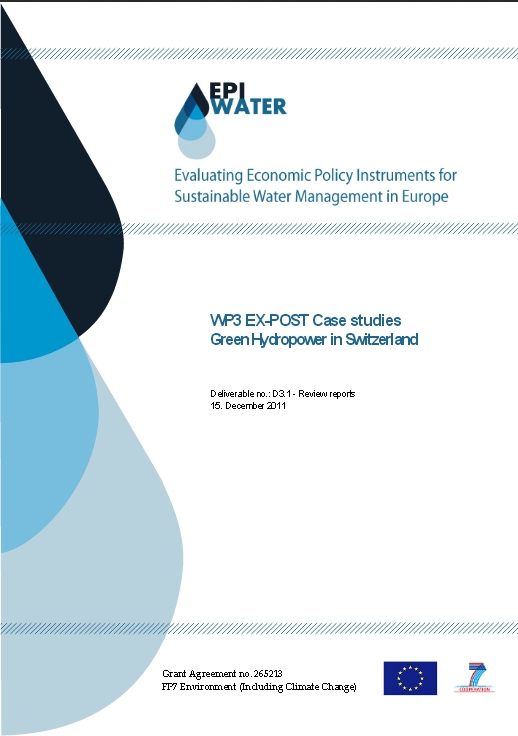Evaluating Economic Policy Instruments for Sustainable Water Management in Europe
Review of the Assessment Framework and Toolbox
- Publication
- Citation
Zetland, David; Hans-Peter Weikard; Gonzalo Delacamra et al. 2012: Evaluating Economic Policy Instruments for Sustainable Water Management in Europe: Review of the Assessment Framework and Toolbox. Ecologic Institute.
The EPI-Water project aims to understand how Economic Policy Instruments (EPIs) succeed or fail in directing water resources to uses that reflect social value and priorities. The project, which runs from January 2011 to December 2013, uses a multi-faceted Assessment Framework (AF) to make ex-post evaluations of existing EPIs that have been operating in Europe and abroad, and make ex-ante evaluations of potential EPIs that may be implemented within Europe. The Review of the Assessment Framework is available for download.
EPIs use different "delivery mechanisms" to reach their objectives. EPIs can spur behavioural change through incentives or disincentives, change conditions to enable economic transactions, or reduce risk. EPIs can be used as complements or substitutes to existing regulatory or voluntary methods of managing water quality and water flows. EPIs often use price or market mechanisms to change incentives and/or increase the range of potential actions. An EPI aimed at groundwater depletion, for example, might impose a tax on extractions. An EPI aimed at reducing the potential harm from floods may entail requiring insurance against flood damage. The variety of EPIs means that the AF needs to be flexible enough to accommodate particular EPIs but specific enough to allow side-by-side comparisons of these EPIs.
It is difficult to find an objective and widely-accepted measure of EPI performance. Some focus on environmental outcomes (e.g., water quality); others are interested in social impacts (e.g., the incidence of higher prices for domestic water use); still others concentrate on economic efficiency (e.g., the value of crops grown within a water market). The AF is used to clarify (and where possible, quantify) the effectiveness of each EPI according to seven criteria: environmental outcomes, economic outcomes, distributional effects, institutional background, policy implementation, transaction costs, and uncertainty. Each criterion is described in terms of one or more indicators appropriate to the EPI under consideration.
The EPI-Water project partners have produced 30 case studies to facilitate the understanding and operation of EPIs targeted at improving water management. The AF makes it easier to describe EPIs in a thorough, rigorous and coherent manner. Decision makers and stakeholders can then debate and implement EPIs appropriate to their local situations and needs.
Part I of this report gives an overview of the purpose of EPI-Water. Part II reviews the performance of the AF given our experience in using it for ex-post reviews of existing EPIs in Europe and beyond. Parts III and IV contain a revised AF that reflects our experiences and learning from using the AF. We will use this AF for the next phase of EPI-Water, the WP4 ex-ante assessments of several EPIs that have the potential to improve water management in Europe.
The report [pdf, 2.6 MB, English] is available for download.
